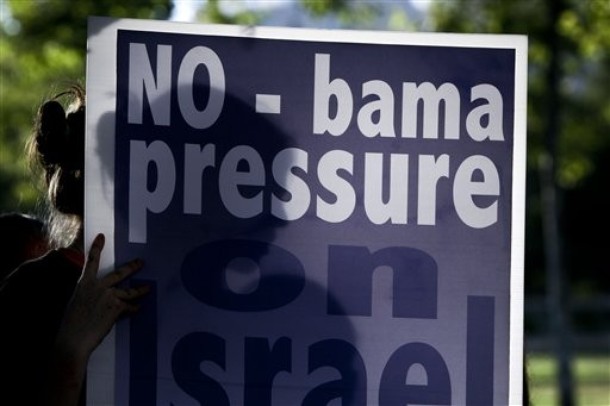
With the Obama-Netanyahu makeup tour underway, some pundits are urging the administration to make Netanyahu's priority - Iran - its own. This would be a mistake - not simply because Iran does not pose the same threat to the U.S. as it does to Israel, but because the result of such a policy would push the U.S. toward an even sharper confrontation with Iran and ultimately some form of military action.
The Obama administration has leveled sanctions against Iran and sought, with modest success, to isolate the country diplomatically. It has reassured Gulf states - verbally and through U.S. military deployments - that it intends to contain Iran on their behalf. It has worked with Israel to upgrade their own defensive capabilities and is cooperating in efforts to covertly destabilize Iran's nuclear program. There are a few more aggressive steps - like a blockade to cut off gasoline imports - that could be tried, but those would edge the U.S. much closer to a military confrontation with the country. In short, the administration has done what it can. There are other foreign policy issues on its plate besides Iran that it must attend to.
Ambassador Ryan Crocker talked about "strategic patience" with respect to diplomatic engineering in Iraq, but if there ever was a case for employing strategic patience, Iran would seem to be it. A young population that bristles against the absurd restrictions of the regime, a country with abundant natural resources and huge potential, and, lest we forget, a former ally.
The U.S. would potentially deal a massive blow to its long term position in a future liberalizing Iran with a military strike. Of course, we can't know when, or even if, Iran will shake off the Mullahs and the Revolutionary Guard. We should never discount the possibility of catastrophe or a miscalculation. But the U.S. - with its large economy, huge military, and strategic location - is well positioned to wait out Iran.











